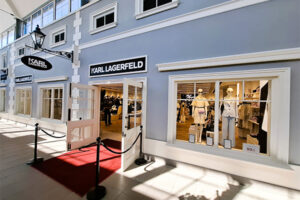By Rida Kalvaitienė
The unexpected Covid-19 pandemic has panned out in various ways in the commercial property markets across the Baltic States. Restrictions imposed during the quarantine period have severely affected the operation of major shopping and entertainment centers. While the turnover of shopping centers has begun to increase, footfall still has not returned to pre-pandemic levels, and experts are not ready to predict more significant developments yet. Meanwhile, the altered situation has brought with it a number of challenges in the field of real estate management, note the specialists at Newsec.
“Major shopping centers are currently returning to their pre-pandemic turnover levels at a fast rate, but it is important to stress that, in the Baltics, the biggest shopping centers, not those in residential neighborhoods, have been the hardest hit by the pandemic. Since the end of the quarantine period, many people have chosen to shop at smaller grocery stores or shopping centers near their homes in order to avoid crowds and limit their risk of contracting Covid-19. That makes it quite challenging for big shopping centers to recover the visitor footfall they had before,” says Rida Kalvaitienė, Head of Newsec Property Asset Management in the Baltics.
During the quarantine, she said, local food suppliers whose goods could be ordered online could not satisfy all of their customers’ needs due to product-range and home-delivery limitations, so some people continued to go to stores. At that point, the function of smaller malls that were located in residential areas and featured grocery stores as their main tenants came to the forefront.
Challenges in the Management of Malls
Shopping centers in the Baltic countries that were built a decade or more ago have undergone active renovation and reconstruction work in recent years, focusing mainly on creating or upgrading leisure and entertainment spaces – more space was allocated for restaurants, specialized food stores, entertainment, and event organization.
“Until now, the development of shopping centers’ common spaces was dominated by a need to cover as many social aspects as possible, to extend the role of shopping centers from places meant solely for shopping to places for people to gather, socialize, and spend their free time as well. Today, that is one of the aspects most impacted by the pandemic, as people are avoiding spending their free time indoors. On the one hand, given the current circumstances, those spaces are helping to ensure bigger distances between people, but, on the other hand, their initial purpose was for large gatherings and other ways to boost the flow of customers,” Kalvaitienė comments.
The ongoing pandemic and the need to comply with safety requirements have also altered malls’ marketing strategies. While pandemic-related safety requirements make it unsafe to encourage and increase flows of visitors, the need to increase sales remains. However, it must be done responsibly, so marketing professionals are being forced to seek out new approaches.
“We have noticed that some services, such as children’s playrooms and cinemas, have not returned to full operation capacity yet. It is important to note that a country’s epidemiological situation and the related decisions made by state institutions, such as regulating the working hours of food service providers, have immediate impact on the service sector. The sensitivity of that particular area complicates both the efforts of shopping center managers to find solutions and tenants’ future plans,” the Head of Newsec Property Asset Management in the Baltics adds.
Different Strategies
Kalvaitienė notes that the countries in the Baltic region have adopted different strategies for mitigating losses incurred during the quarantine. In Lithuania, for example, the government decided to cover 70 percent of commercial real estate tenants’ rent during the quarantine and for two months after. “The relief scheme drawn up by the Finance Ministry was aimed at softening the impact of the crisis on tenants and creating conditions for the smooth and prompt restarting of activities that had been halted at leased premises. The program’s implementation period was limited, so shopping center managers had to actively work together with tenants, which included 200 to 300 at bigger shopping centers, so the intensity of the negotiations was a source of quite a few management challenges,” Kalvaitienė says.
At present, the expert says, the issue of renewing lease agreements is highly relevant, since tenants are uncertain about the future and want to sign shorter-term leases or are demanding more flexible terms for terminating agreements.
Despite the impact of the Covid-19 crisis, there have been no bankruptcies among core tenants in the Baltics so far, whether in entertainment, food service, fashion, or other sectors; they continue to operate effectively. Interestingly, the pandemic’s arrival has not been an obstacle to the acquisition of Forum Cinemas, which has movie theaters in all the Baltic countries, by UP Invest, the Estonian investment firm that owns the Apollo Group. Both parties to the transaction are currently awaiting approval of the business merger by the Estonian, Latvian, and Lithuanian competition authorities.
Physical Stores Remain Important
According to Kalvaitienė, the pandemic, in particular, the quarantine period, has given companies an opportunity to focus more on developing e-commerce channels and to use additional resources to that end. However, in her expert opinion, even though e-commerce nearly doubled in Lithuania during the quarantine period (from 4.4 percent on average in 2019 to 8.4 percent during the peak of the pandemic in April 2020), and customers quickly adapted to the situation and acquired new skills, what works best is a combination of online and physical stores, so the two sales channels should not be pitted against each other.
“We can see that physical stores are still important to over 90% of customers, so shopping centers’ function is and will remain significant. A trend now taking hold is for people to attend to more needs during a single visit and shop at several different places each time they come. In other words, they are planning their shopping trips more thoroughly, and they are not visiting shopping centers as often. Having a bigger concentration of stores of various types at shopping centers fulfils customers’ need to get all the items they require in one go, so people are continuing to visit bigger shopping centers, which, in turn, are highly focused on ensuring visitor footfall and safety,” the expert comments.
Kalvaitienė says the implementation of additional hygiene norms at malls has been standard practice since before the outbreak, but further measures are actively being taken these days: Some shopping centers are investing in technologies and preventive measures, while others are pursuing certification. In Lithuania, for example, certification of readiness to manage risks related to the spread of the coronavirus was successfully obtained by three malls that Newsec manages – Kaunas Akropolis, Ozas in Vilnius, and BIG Vilnius.
“Both for shopping centers and for individual tenants, the most important thing to do today is to adapt to the changed situation and collectively seek solutions that are not limited to just negotiating discounts on rent. Tenants have to continue improving the quality of service, updating store concepts, and strengthening the synergy between e-commerce and physical sales. Shopping center managers, meanwhile, should focus on ensuring the safety of customers and introducing new technologies aimed at promoting the sales of the tenants at the specific shopping center in question,” Rida Kalvaitienė says in summary.





